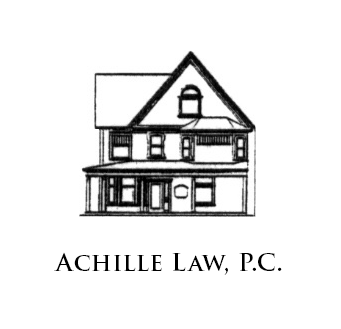What are your rights as a buyer when a seller of a home fails to disclose known material defects as required under Pennsylvania law?
If you have sold or purchased residential real estate in Pennsylvania, you would know that the seller has to complete a disclosure of known material defects with the property. The failure to disclose the problems may result in liability of the seller to the buyer who later discovers the problems that were hidden and not disclosed by the seller. While the seller is not required to make an investigation to complete the disclosure form, the seller shall not make any representations that they or their agent know or have reason to know are false, deceptive or misleading nor shall they fail to disclose a known material defect. The seller cannot escape this duty by including “as is” sale language.
On the seller’s side, the courts have ruled that a seller was not required to disclose to a purchaser that there was a murder/suicide in the home or that there was a group home for mentally-challenged adults on the adjacent property. A buyer shall not have a cause of action against the seller or the agent for either or both of the seller or the buyer for (1) material defects to the property disclosed to the buyer prior to the signing of an agreement of transfer by the seller and buyer; (2) material defects that develop after the signing of the agreement of transfer by the seller and buyer; or (3) material defects that occur after final settlement.
This article will explore a buyer’s rights under Pennsylvania law when a seller fails to disclose critical information, leaving a buyer to deal with the consequences, potential responsibilities of real estate agents, and the remedies available when faced with undisclosed property issues.
Your Rights as a Buyer:
Under Pennsylvania law, the seller is required to complete a property disclosure form, outlining any known issues with the property. Common problems include electrical, heating, water supply or sewage problems, water infiltration, roof leaks, structural issues, infestations of rodents or termites, radon, hazardous conditions, legal issues affecting title or use of the property, soils, drainage, boundaries, sinkholes and other issues listed on the disclosure form.
If a seller fails to disclose material defects, they may be held liable for the buyer's damages determined by the repair costs, capped by the market value of the property. In cases of severe fraud or misrepresentation, lead to rescission or cancellation of the sale and return of the property to the seller. You may ask the court for specific performance or to order the seller to fix the problem at their expense.
In Pennsylvania, the time limit for bringing an action against the seller for undisclosed defects is two years from the date of settlement on the sale of the property.
Realtor's Responsibility:
In Pennsylvania, real estate agents are held to a standard of care and have a duty to both the buyer and the seller. If a real estate agent knew about the undisclosed problem but failed to inform the buyer, they might also be held liable.
When a real estate agent represents both the seller and the buyer, as a dual agent, they are obligated to act in the best interests of both parties. In this situation, the agent is expected to disclose any known property issues to the buyer. Failing to do so can result in the agent being held liable for damages or facing disciplinary actions from the Pennsylvania Real Estate Commission.
Next Steps
If you suspect that your home seller or real estate agent failed to disclose known issues with you on a recently purchased property, acting quickly to protect your rights is essential. As a Pennsylvania law firm, we can help you navigate this complex process and explore your legal options such as proceeding under the Real Estate Seller Disclosure Law discussed above or under the Unfair Trade Practices and Consumer Protection Law, or Fraudulent misrepresentation.
If you suffered injuries of any type, turn to Achille Law, P.C., located at 379 Main Street, Brookville, PA 15825.
Learn more about our personal injury services, or click the button below to set up a free consultation today!
